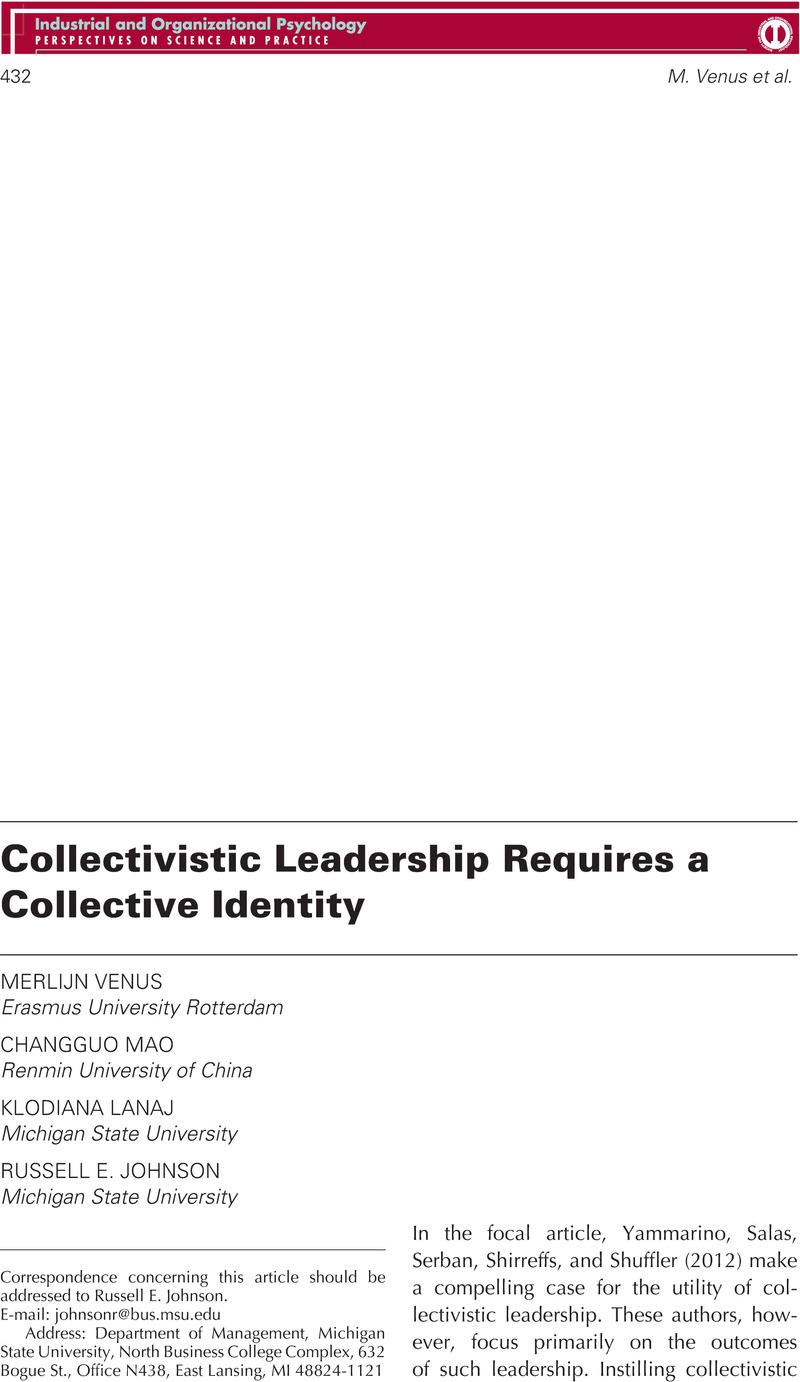Crossref Citations
This article has been cited by the following publications. This list is generated based on data provided by Crossref.
Shuffler, Marissa L.
Salas, Eduardo
Yammarino, Francis J.
Serban, Andra
and
Shirreffs, Kristie
2012.
Putting the “We” in Leadership: Continuing the Dialogue to Advance Our Science and Practice.
Industrial and Organizational Psychology,
Vol. 5,
Issue. 4,
p.
437.
Drescher, Gesche
and
Garbers, Yvonne
2016.
Shared leadership and commonality: A policy-capturing study.
The Leadership Quarterly,
Vol. 27,
Issue. 2,
p.
200.
Zhu, Jinlong
Liao, Zhenyu
Yam, Kai Chi
and
Johnson, Russell E.
2018.
Shared leadership: A state‐of‐the‐art review and future research agenda.
Journal of Organizational Behavior,
Vol. 39,
Issue. 7,
p.
834.
Spiller, Chellie
Maunganui Wolfgramm, Rachel
Henry, Ella
and
Pouwhare, Robert
2020.
Paradigm warriors: Advancing a radical ecosystems view of collective leadership from an Indigenous Māori perspective.
Human Relations,
Vol. 73,
Issue. 4,
p.
516.
De Brún, Aoife
Anjara, Sabrina
Cunningham, Una
Khurshid, Zuneera
Macdonald, Steve
O’Donovan, Róisín
Rogers, Lisa
and
McAuliffe, Eilish
2020.
The Collective Leadership for Safety Culture (Co-Lead) Team Intervention to Promote Teamwork and Patient Safety.
International Journal of Environmental Research and Public Health,
Vol. 17,
Issue. 22,
p.
8673.
De Brún, A.
and
McAuliffe, E.
2023.
“When there's collective leadership, there's the power to make changes”: A realist evaluation of a collective leadership intervention (Co-Lead) in healthcare teams.
Journal of Leadership & Organizational Studies,
Vol. 30,
Issue. 2,
p.
155.
Rudnev, Evgeny
2023.
People Management - Highlighting Futures.
Vol. 3,
Issue. ,
Ramamoorthi, Bhavani
Jäppinen, Aini-Kristiina
and
Taajamo, Matti
2023.
Manifestations of leadership identity development among multicultural higher education students.
European Journal of Training and Development,
Vol. 47,
Issue. 10,
p.
147.





